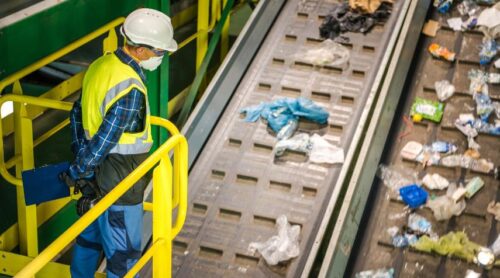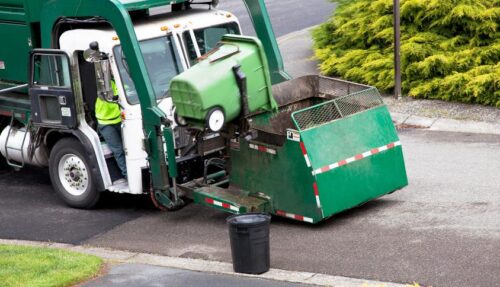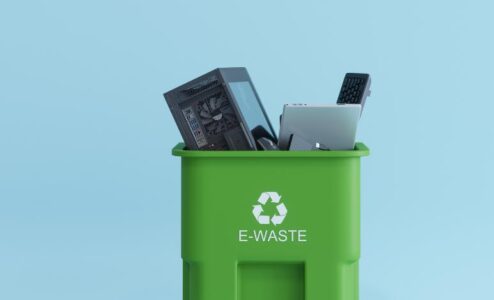
Innovative Smart Waste Management Technologies
Welcome to the future of waste management! As our population grows and consumer culture continues to thrive, global waste is expected to double by 2050. This puts immense pressure on traditional waste collection systems that are already struggling to keep up. Thankfully, communities around the world are turning to smart waste management technologies and solutions that use real-time data tracking and IoT technology for more efficient, cost-effective, and eco-friendly trash collection. In this blog post, we’ll explore some of the most innovative smart waste management technologies available today!
What Is Smart Waste Management?
Smart waste management is a new and innovative approach to handling the growing amount of waste produced globally. It refers to any system that uses technology to make trash collection more efficient, cost-effective and environmentally friendly.
At the core of smart waste management systems is the Internet of Things (IoT), which collects real-time data on waste generation, disposal, recycling rates and other important metrics. This information helps communities optimize their waste collection processes and identify areas for improvement.

By leveraging IoT technology, cities can reduce their carbon footprint by minimizing unnecessary trips made by garbage trucks. Smart bins placed throughout city streets are equipped with sensors that detect when they are full or nearing capacity. This allows them to be emptied only when necessary, saving both money and resources in the process.
Another benefit of smart waste management technologies is how they improve recycling rates by making it easier for people to recycle properly. Automated sorting systems can accurately separate recyclables from non-recyclable materials without human intervention.
Why Is Smart Waste Management Important?
Smart waste management is becoming increasingly important in today’s world, as the amount of waste produced each year continues to rise. According to the Environmental Protection Agency (EPA), only about 30% of recyclable materials in the UK actually get recycled, despite roughly 70% being eligible for recycling. This means that a significant portion of potentially reusable material ends up taking up space in landfills or polluting waterways.
Furthermore, traditional waste management systems are not equipped to deal with the growing populations and increased amounts of trash generated by modern society. Without more efficient and cost-effective solutions, communities around the world will struggle to keep up with demand for garbage collection and disposal services.

However, cities can better optimize their resources by adopting smart waste management technologies and divert more trash away from landfills. These systems use monitoring technology like IoT devices to collect real-time data on fill levels or even sort out recyclables automatically.
It is clear that smart waste management technologies are essential for reducing the environmental harm caused by improperly disposed of the trash while also helping streamline operations for local governments tasked with managing this issue.
Innovative Smart Waste Management Technologies
Smart Waste Bins
The problem with traditional waste bins is that they require users to sort their trash into the correct bin, which doesn’t always happen. Fortunately, Bin-e has developed a smart waste bin that uses artificial intelligence to do the sorting for you.
These innovative bins have separate compartments for different types of recyclables such as paper, plastic and glass. Object recognition technology can identify each item and direct it toward the appropriate compartment.

Once sorted, these bins compress the waste and monitor how full each compartment is. This takes human error out of the initial sorting process, making material processing faster and easier for waste recycling facilities.
Smart waste bins not only improve efficiency but also reduce costs by lowering collection trips required by garbage trucks. They can lower costs by up to 80%, which means more money saved in municipal budgets.
Furthermore, employees who used to spend hours manually sorting through garbage now get to focus on other tasks like cleaning or maintenance work around their respective areas since automated processes take care of most issues related to waste removal.
Garbage Truck Weighing Mechanisms
Garbage truck weighing mechanisms are a game-changer for waste management systems. By measuring the weight of waste containers and storing that data, these sensors can predict when those containers will be full and need to be emptied. This allows cities to more accurately schedule garbage collection trips, reducing the number of unnecessary pickups and ultimately lowering annual collection costs.

Not only does this technology save money, but it also helps reduce carbon emissions by cutting down on fuel usage from fewer garbage trucks on the road. Plus, with less frequent collections needed, there is less traffic congestion in residential areas during peak hours.
Implementing garbage truck weighing mechanisms into waste management systems is a smart move for any city looking to improve efficiency while also being environmentally conscious.
E-Waste Kiosks
E-waste is a growing issue in today’s society. With new electronic devices constantly being released, old ones are often discarded improperly and end up in landfills where they can harm the environment and potentially even leak harmful chemicals into water sources. To combat this problem, ecoATM has created a line of e-waste recycling kiosks that make it easy for people to properly dispose of their unwanted electronics.
These kiosks not only accept phones, tablets, and MP3 players in any condition – they also offer cash on the spot for certain items. While they won’t always offer money for broken or damaged devices, customers can still feel good about getting rid of their unwanted electronics properly while possibly earning some extra cash at the same time.

Additionally, ecoATM ensures that all items collected through these kiosks are recycled responsibly. This means that hazardous materials are disposed of safely and valuable metals found within the devices are extracted for reuse.
E-waste recycling kiosks like those offered by ecoATM provide an easy solution to a growing problem. By making it convenient to recycle electronics and offering incentives such as cash back or discounts on future purchases, more people may be willing to participate in proper e-waste disposal practices which ultimately benefits both humans and the environment alike.
Pneumatic Waste Pipes
Pneumatic waste pipes are an innovative solution to the growing problem of waste management in urban areas. With increasing populations, traditional waste collection methods have become inefficient and costly. That’s where pneumatic waste disposal bins come in.
These bins connect to a series of underground pipes that transport trash directly to a central collection plant. This system eliminates the need for traditional garbage trucks and reduces energy costs associated with their use.

Not only does it increase efficiency, but it also helps reduce carbon emissions from garbage trucks on the road. Additionally, because this method is automated, there is less risk of worker injury or accidents related to garbage truck collisions.
While pneumatic waste disposal systems require significant upfront investment and planning, they offer long-term cost savings and environmental benefits that cannot be ignored. As more cities adopt this technology, we can expect cleaner streets and better-managed waste for generations to come.